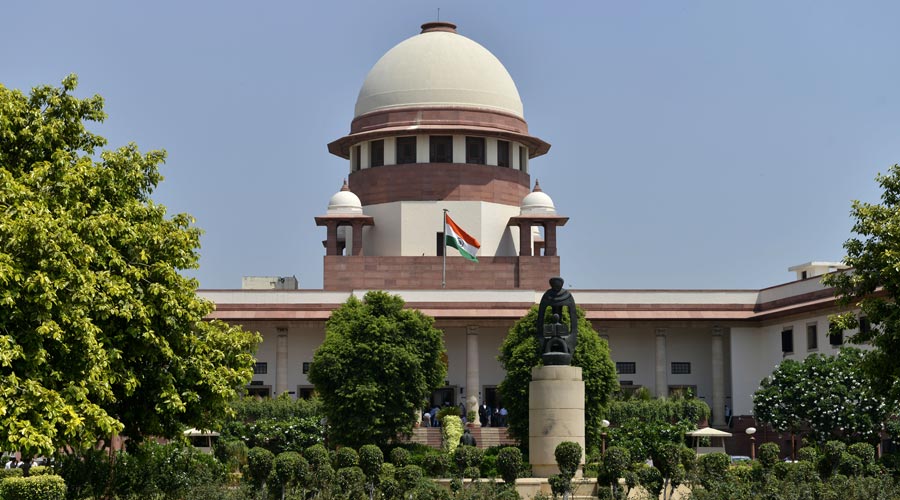The Centre on Monday sought an adjournment for the third consecutive time to firm up its response to petitions challenging a law that prohibits the conversion of any place of worship, except the Ramjanmabhoomi site in Ayodhya.
The Places of Worship Act was passed by the P.V. Narasimha Rao government with a view to preventing different groups staking a claim to shrines.
The 1991 act prohibits the conversion of any place of worship and mandates that the character of a place of public worship shall not be altered as it existed on August 15, 1947, except the Ram Janmabhoomi-Babri Masjid land, which at that time was already under litigation.
“This (batch of petitions) challenges the Places of Worship Act. I was given time during earlier hearings. I could not have detailed consultations with the government. I would need consultations at a higher level… the deliberations are going on at the highest levels,” solicitor-general Tushar Mehta told a bench of Chief Justice D.Y. Chandrachud and Justice J.B. Pardiwala while seeking adjournment till the first week of December.
This is the third adjournment the Centre has sought on the issue. Earlier on October 12 and before that on September 9, the Centre had sought adjournments after the top court sought its response on the PILs challenging the act. Some Muslim organisations have opposed the petitions.
The NDA government’s stance on the issue will be of much significance as the law was enacted by the then P.V. Narasimha Rao government against the backdrop of the intensified Ram Janmabhoomi-Babri Masjid row culminating in the eventual demolition of the mosque by kar sevaks.
Some members of the Hindu community have demanded the restoration of the Kashi and Mathura temples to the Hindus on the ground that they were ravaged by the Mughal invaders.
During Monday’s hearing, the BJP’s Subramanian Swamy said that instead of quashing the 1991 Act, two more temples — Kashi and Mathura — may be added as exemptions, along with Ayodhya temple.
“I am not seeking to set it aside, but only two more temples need to be added and then the act can remain as it is,” Swamy submitted.
Chief Justice Chandrachud said that the matter would be taken up by a threejudge bench.
Accordingly, the court directed the Centre to file its counter-affidavit by December 12. It said the Centre should furnish a copy of the response to all the petitioners to enable them to file rejoinders and posted the matter for further hearing in the first week of January 2023.
The batch of petitions has been filed by Hindutva proponents while the All-India Muslim Personal Law Board and the Jamiat Ulama-i-Hind have filed intervention applications opposing the petitions.
The Jamiat Ulama-i-Hind had contended that quashing the law would “open the floodgates of litigation against countless mosques” and widen “the religious divide from which the country is recovering in the aftermath of the Ayodhya dispute”.











